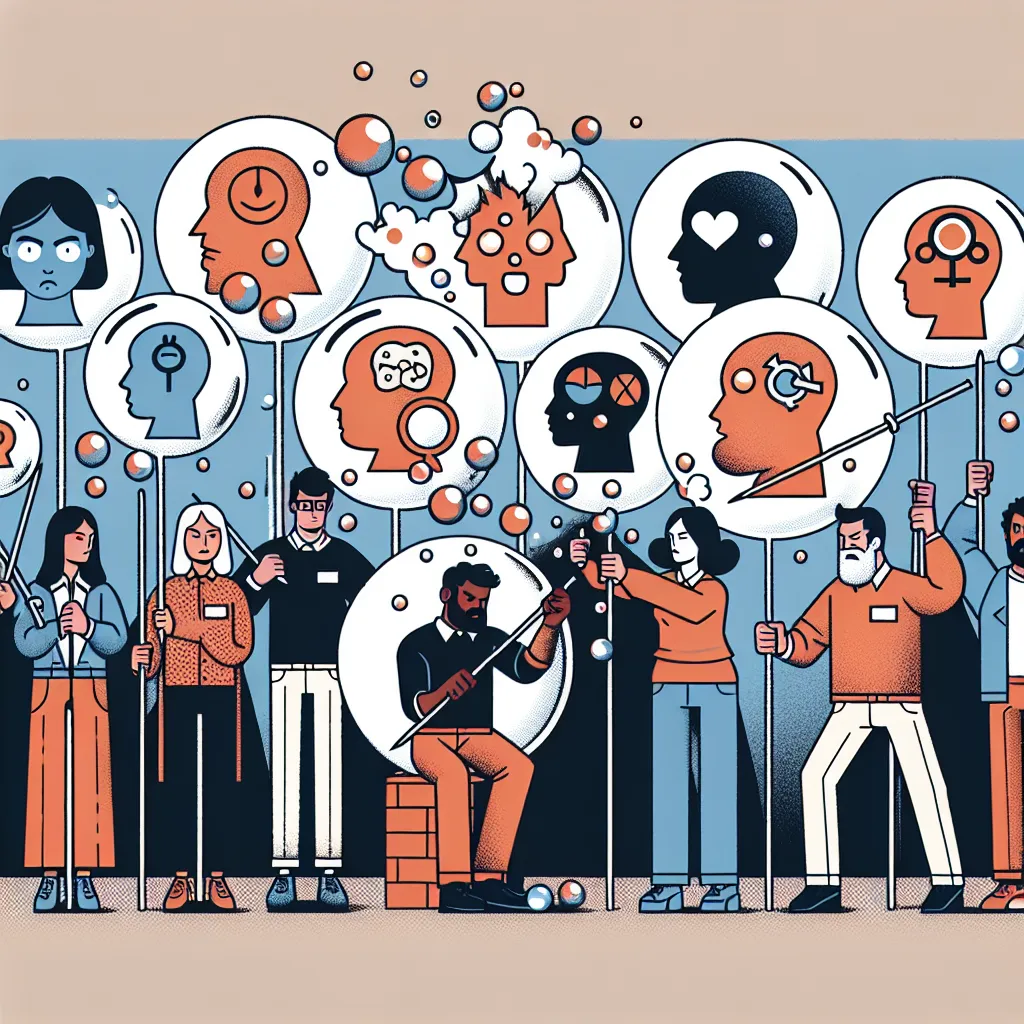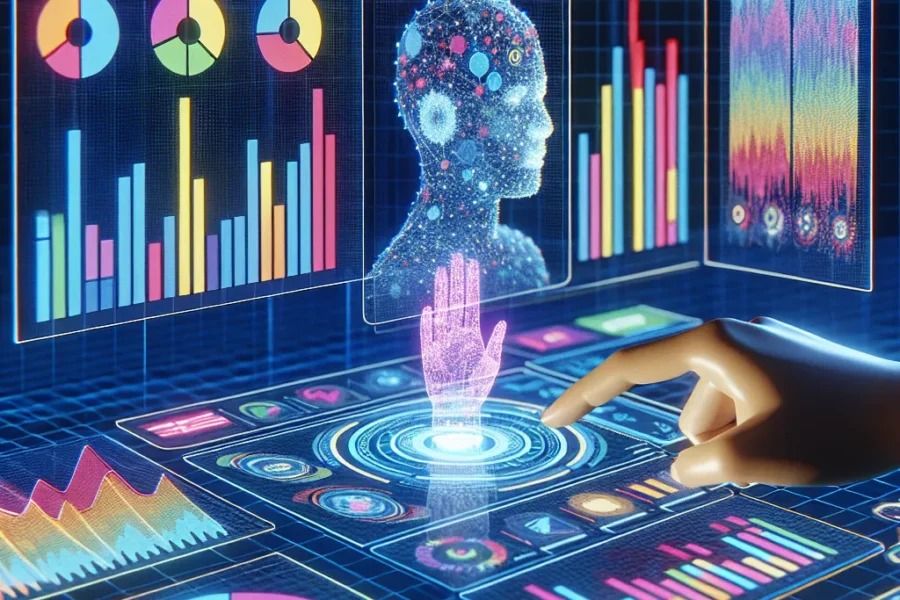Stereotypes are widely held but fixed and oversimplified ideas or perceptions of particular types of people or things. When it comes to personality types, stereotypes often arise from a superficial understanding of what these types truly entail. This article seeks to debunk the common myths surrounding personality types and help us appreciate the individual complexities beyond simplistic categorizations.
Myth 1: Extroverts Are Always Sociable and Outgoing
A common misconception about extroverts is that they are the life of the party and constantly seek social interaction. However, while extroverts are generally energized by being around others, it doesn’t mean they are incapable of solitude or deep thought. Extroversion is more about how one recharges and where they prefer to focus their energy rather than an absolute measure of sociability.
Myth 2: Introverts Are Shy and Anti-Social
Conversely, introverts are often labeled as shy or anti-social. However, introversion simply means that a person may feel drained by social encounters and recharge through alone time. Many introverts are socially skilled and enjoy meaningful conversations but prefer to engage in smaller groups or one-on-one interactions.
Myth 3: Sensors Are Not Creative
Those who align with sensing preference on personality assessments, such as the Myers-Briggs Type Indicator (MBTI), are sometimes viewed as lacking creativity. This stereotype misinterprets their preference for tangible, practical information as an absence of innovative thinking. In reality, sensors can be exceptionally creative, applying their observant nature to generate concrete solutions.
Myth 4: Intuitives Cannot Be Practical
On the flip side, intuitives—those who focus on possibilities and abstract concepts—are also pigeonholed, with the myth that they’re always lost in their thoughts and cannot handle practical affairs. This is a vast oversimplification, as intuitives can be very pragmatic when needed, using their future-oriented thinking to plan effectively and address real-world issues.
Myth 5: Thinkers Are Cold and Unfeeling
Thinker personality types, as defined by some typologies, make decisions based on logic and objective considerations. This has led to the stereotype that thinkers are cold-hearted or lack empathy. However, thinkers can be deeply empathetic and may sometimes prioritize others’ needs over their own—they simply process emotions and make choices with an emphasis on rationality.
Myth 6: Feelers Are Overly Emotional and Irrational
Contrastingly, feelers are often thought to be ruled by their emotions and incapable of logical decision-making. This myth fails to acknowledge that feelers base their decisions on values and subjective assessments, which does not equate to irrationality. Their decision-making process is just as valid and can bring a necessary human touch to situations where cold logic would fall short.
Myth 7: Judgers Are Inflexible and Rigid
Judging types, according to personality assessments like the MBTI, prefer structure and decisiveness. From this preference stems the stereotype that judgers are inflexible and rigid, unable to adapt to changes. While judgers may favor order, many are quite adaptable and understand that flexibility can be key to managing the unpredictable nature of life.
Myth 8: Perceivers Are Disorganized and Unreliable
In the realm of stereotypes, perceivers—those who prefer to remain open to new information and experiences—are often misbranded as disorganized or unreliable. This assumption overlooks the adaptability and spontaneity that perceivers bring to the table, contributing to innovative and dynamic problem-solving that relies on their ability to think on their feet.
Myth 9: All Personality Types Fit Neatly Into Boxes
Perhaps the most pervasive stereotype is the belief that everyone fits perfectly into a specific personality type, with no room for deviation. This black-and-white thinking ignores the nuanced spectrum of human behavior and experience. Personality is fluid and can evolve over time; individuals often display traits across different types within various contexts.
Breaking Down the Stereotypes
To tackle these myths, it’s important to adopt a more nuanced view of personality. Personality assessments can be valuable tools for self-discovery and developing understanding among teams; however, they should be seen as guides, not definitive labels. Each person is unique, with a mixture of traits that might straddle the conventional lines drawn by typologies.
In addition, we should recognize the role of the environment in shaping personality. Cultural background, life experiences, and current circumstances can all influence how a person expresses their personality traits. Thus, rather than boxing people into categories, it’s far more constructive to remain open to the complexity of individual personalities.
Furthermore, linguistic nuances and differing definitions across various cultures and languages can result in misleading interpretations of personality types. It’s crucial for discussions about personality to remain context-aware and inclusive, considering the diverse ways in which personality is expressed globally.
The Importance of Individuality
Debunking stereotypes is vital in fostering an environment where individuals feel seen and understood for who they truly are, rather than being judged based on a narrow set of expectations. When we move away from stereotypes and myths about personality types, we create space for more authentic connections and interactions.
In the workplace, this can lead to improved teamwork and collaboration, as colleagues learn to appreciate the different strengths and perspectives each person brings. In personal relationships, understanding the multifaceted nature of personalities can deepen connections and facilitate better communication.
Conclusion
Dispelling myths about personality types is critical in our journey toward a more inclusive and empathetic society. By understanding the limitations of stereotypes and embracing the complexity of human personality, we can improve our interactions and relationships with others, ensuring that we see each person as more than just a type, but as a unique individual with their own blend of traits and characteristics.



Leave a Comment